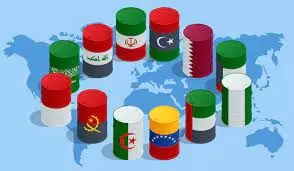- Home
- /
- Trending-News
- /
- We’re working on...

The Organisation of the Petroleum Exporting Countries (OPEC) said on Thursday that the outcome of the 2023 UN Climate Change Conference (COP28) and its agreement, reflected OPEC advocacies on pathways towards reducing carbon emission.
The Secretary-General of OPEC, Haitham Al-Ghais, said this while speaking with newsmen on the side-line of the ongoing 7th Nigeria International Energy Summit (NIES 2024) in Abuja.
The summit which has as its theme: “Navigating the new energy world order: Security, Transition, and Finance” began on Feb. 26 and will end on March 1.
Supreme News reports that the 28th session of the Conference of the Parties (COP28) to the UN Framework Convention on Climate Change (UNFCCC), held in the United Arab Emirates (UAE) between Nov. 30 and Dec. 13, 2023.
The OPEC Secretary-General lauded the effective participation of the oil gas stakeholders at the COP28 and the successful hosting by the UAE, an OPEC member.
Al-Ghais recalled that the first ever Global Decarbonisation Chatter was signed at the conference ,with over 50 oil and gas producing companies around the world participating.
He said the companies represented around 40 per cent of global production, while five of those companies were from the national oil companies of OPEC member countries.
They pledged to triple renewable energy, reduce methane emissions and double efficiency which had never been achieved in previous COPs.
“We are proud that our member country managed to bring about a successful outcome of the COP28 and the wording in the agreement reflects what OPEC has been advocating for so many years.
“OPEC has been calling for a series of multiple pathways to achieve the same objective.
“We believe that the transition that may happen in one part of the world may not necessarily be a transition suitable for Nigeria or for example, my own country Kuwait.
“The beauty of the outcome of the COP28 is that it laid out a whole range of options for countries to follow through its renewable energies, and the role of technology was emphasised.”
He said that technology and investment were encouraged by developing technology such as Carbon Capture Utilisation and Storage (CCUS), to reduce emission.
He said there were many pathways in the agreement that would enable countries and continents to pursue their own pathway towards reducing the emission.
“The UAE presidency successfully managed to bring all stakeholders to the table, but in previous COPs, unfortunately, the oil and gas industry was excluded; we were not allowed to be at the table.
“COP27 in Egypt was the beginning of our participation in such meetings, while COP28 truly saw effective participation by the oil and gas industry stakeholders, along with others,’’ he said.
He further explained that OPEC had a special section that focuses on expanding dialogue and outreach to consumers.
According to him, OPEC believes that producing and consumer countries must have synergy together.
“We provide stability in the global energy market, through reliable supply; we ensure the market is always balanced and try to create a friendly business environment.



